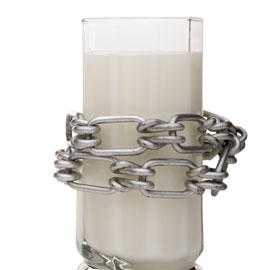 Though about 14 million Americans experience the symptoms of GERD every day, each person’s symptoms are caused by different factors. This is part of what can make it difficult to manage GERD on your own in Macon—you may know a few specific foods that cause your reflux symptoms, but not every known GERD contributor will cause symptoms for you, and there may be others you haven’t yet considered.
Though about 14 million Americans experience the symptoms of GERD every day, each person’s symptoms are caused by different factors. This is part of what can make it difficult to manage GERD on your own in Macon—you may know a few specific foods that cause your reflux symptoms, but not every known GERD contributor will cause symptoms for you, and there may be others you haven’t yet considered.
Many people who suffer from chronic heartburn end up developing a lifelong Tums or proton-pump inhibitor habit, but this is much like pouring cups of water on a burning building: the flames die down momentarily and inevitably blaze back up. Besides GERD surgery, one of the best ways to fight off acid reflux is to find the lifestyle factors that lie at the root of the problem and set our minds to fixing those.
Sometimes, this means a little trial and error. You may have tried countless strategies to get your heartburn to let up, but often you just need to take a vacation from certain foods to see if it they’ve been contributing to your symptoms. Though we’re often told to cut out spicy foods, fatty foods, caffeine and carbonation, there may be another, lesser-known culprit lurking in your fridge: milk.
Why Could Dairy Prompt Heartburn?
Some experts believe that the widespread nature of lactose intolerance in our society (50 million American sufferers) is a good indicator that humans have evolved beyond needing the milk of other animals. Though we need our mothers’ milk as babies and are often told that drinking milk is a necessity in fending off bone-related diseases like osteoporosis, the rate of bone fractures is actually highest in countries that drink the most milk. As it turns out, milk and large amounts of calcium aren’t as important to increasing your bone strength as we once believed—what you need most is regular exercise and vitamin D, which you can get from sunlight.
But most importantly for GERD sufferers, milk and other dairy products are our biggest sources of saturated fat, which is well known to increase the risk of heartburn. Many people find that when they discontinue or reduce the amount of dairy they eat and drink symptoms quickly discontinue.
If you suffer from GERD in Macon and feel like you’ve tried just about everything, you may need to talk to your GERD doctor about cutting down on your dairy intake. Even switching to low-fat or non-fat dairy products can help you reduce the amount of saturated fat in your diet, while you may also want to limit other fatty proteins like beef and poultry.
Reducing dairy may help you manage GERD, or it may not—the best part of this solution is that trying it is free. Give it a shot and cut down on dairy products. You may be surprised by how much it helps.
Has cutting down on dairy helped you manage the symptoms of GERD in Macon? Share your experiences, tips and questions with us in the comments below!

Leave a Reply